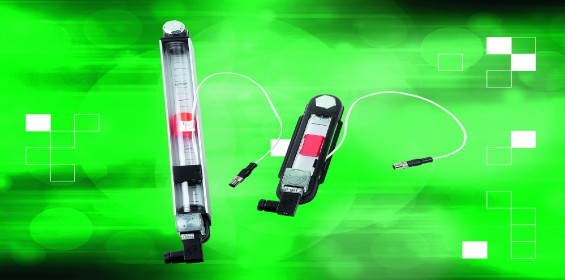Three-way monitoring
Published: 12 April, 2019
Standard components specialist norelem has launched a new range of oil level gauges that can help engineers and manufacturers steer clear of dangerous situations involving oil.
Oil level gauges are crucial to indicating oil levels and temperatures inside of large tanks, gearboxes and reservoirs. Without these, oil can drop below minimum levels, causing extreme machine and engine wear. Oil can also exceed optimum operating temperatures which causes the oil to break down, changing its viscosity and leaving deposits that can damage machine components.
To help better monitor oil levels, on top of optical monitoring, norelem’s electronic components also emit warnings when either of the above scenarios occurs.
To protect against oil dropping below pre-set minimum levels, norelem’s gauges are equipped with a float element with a magnetic core, creating a REED switch (an electrical switch operated by an applied magnetic field). If, after closing the electric circuit and the float drops to or below the minimum level, an electronic signal will sound. The height of the sensor can be adjusted according to requirements.
Temperature levels are also monitored electronically through a bi-metal switch. When the specified temperature is reached, the sensor closes or opens the circuit, depending on the model, and emits a signal when the temperature is exceeded.
“In harsh factory and machinery environments, it is not always easy for engineers to visually detect oil levels and temperatures, and it can pose huge problems not just for the machinery, but also for workers’ health and safety,” said Marcus Schneck, CEO of norelem.
“That’s why our components not just use a fibreglass reinforced plastic housing to enable clear optical detection, but also works electronically to warn when dangerous situations could be happening.”
Versions of the oil level gauges can be bought with either of the electronic monitoring functions or be supplied with both. They can be mounted using two M12 tapped holes or with flanged nuts through two Ø12.2mm holes and are available as a short version with a mounting hole centre distance of 127mm or as longer versions with centre distances of 300, 400 and 500mm.
The display element of the short model has a fibreglass reinforced plastic housing. The longer versions have an aluminium housing. Both versions have a plastic viewing glass that has good mechanical properties and is resistant to mineral oil, petrol, lubrications, paraffin, solutions and most chemicals.







